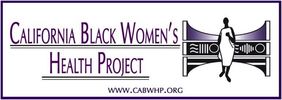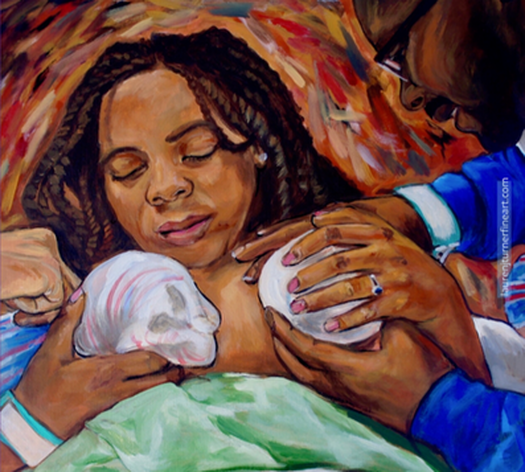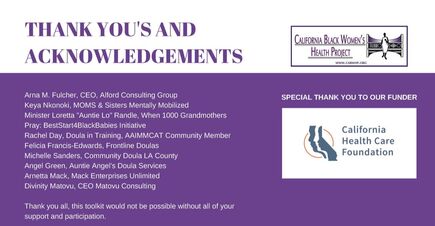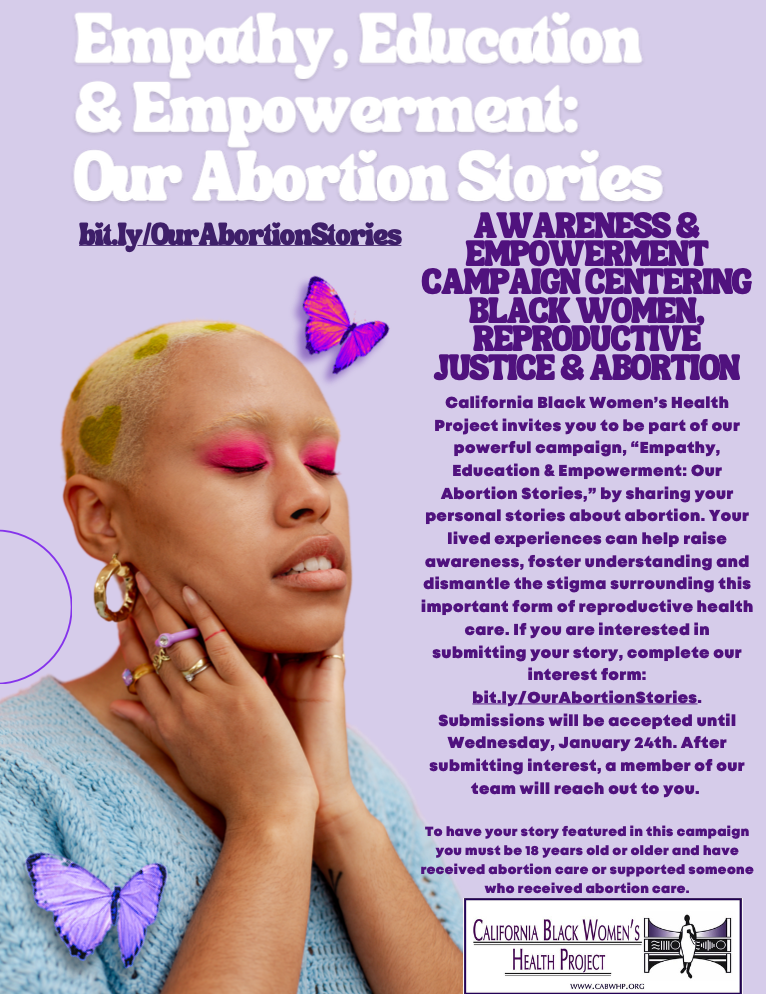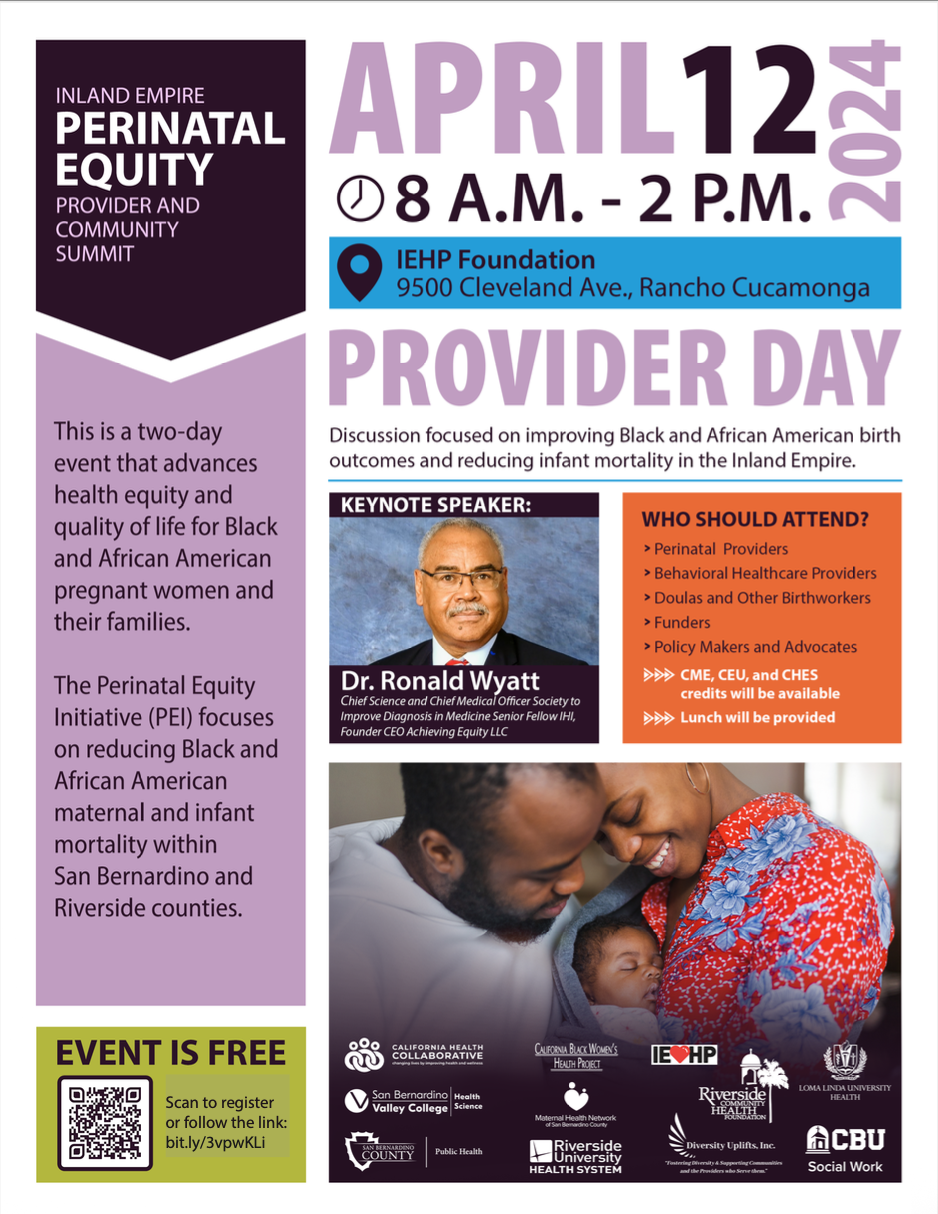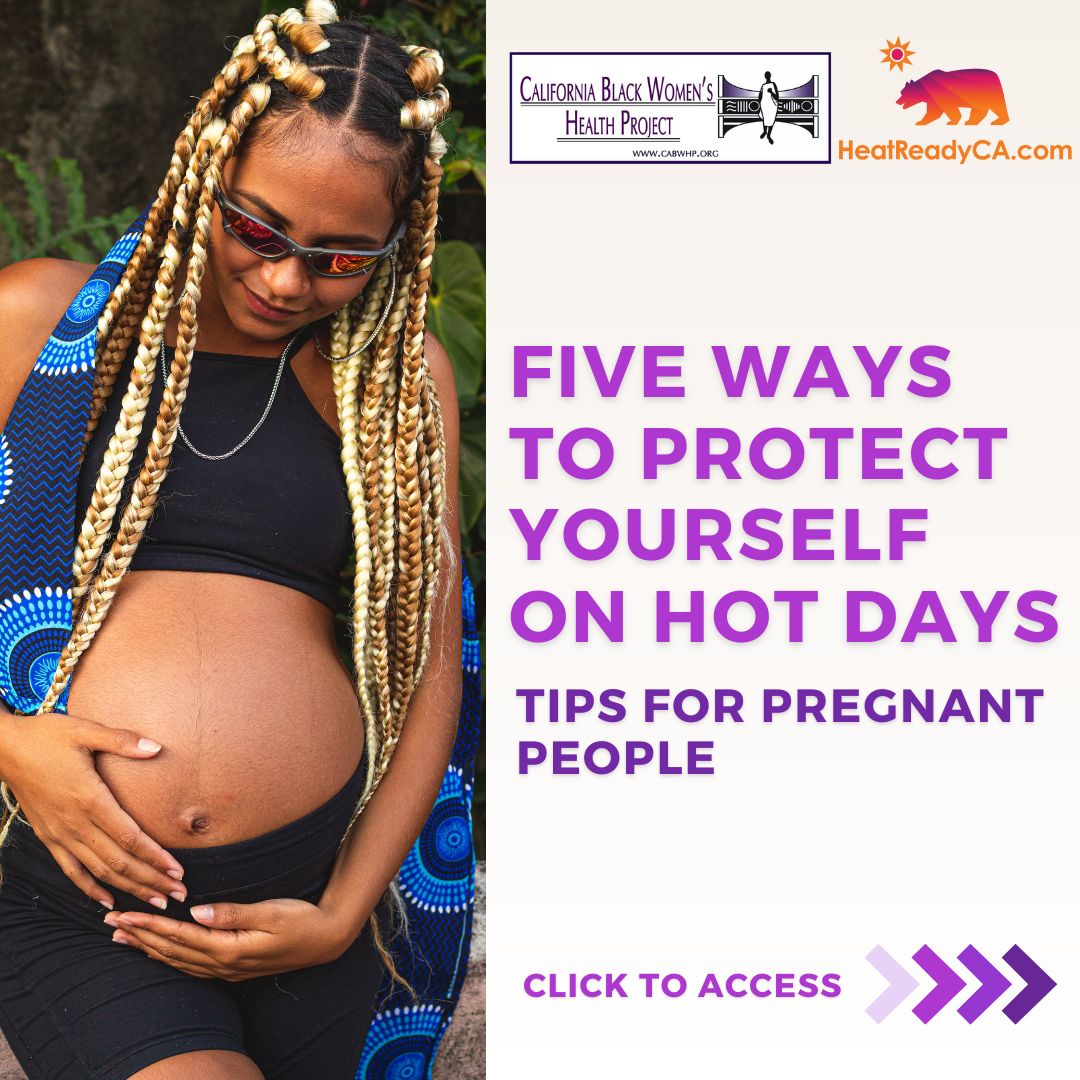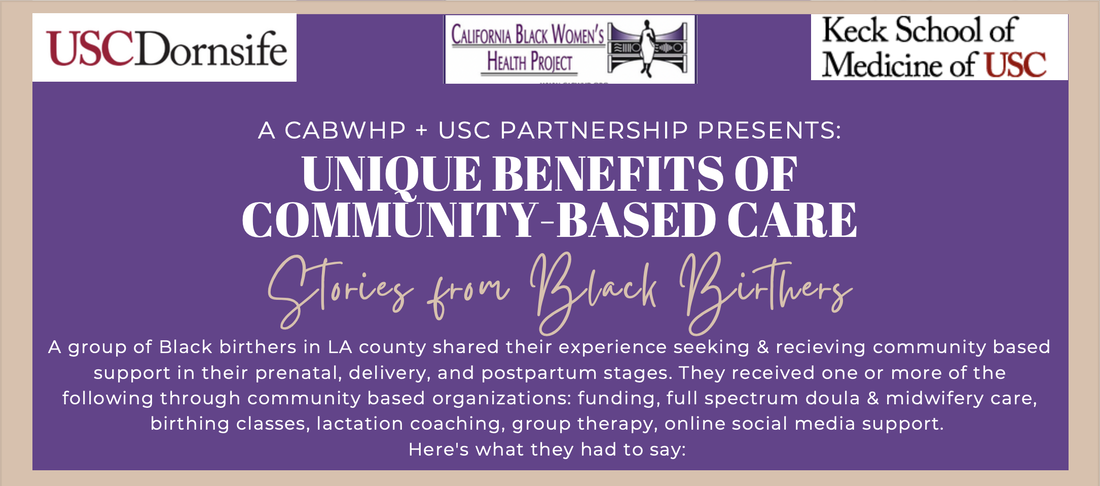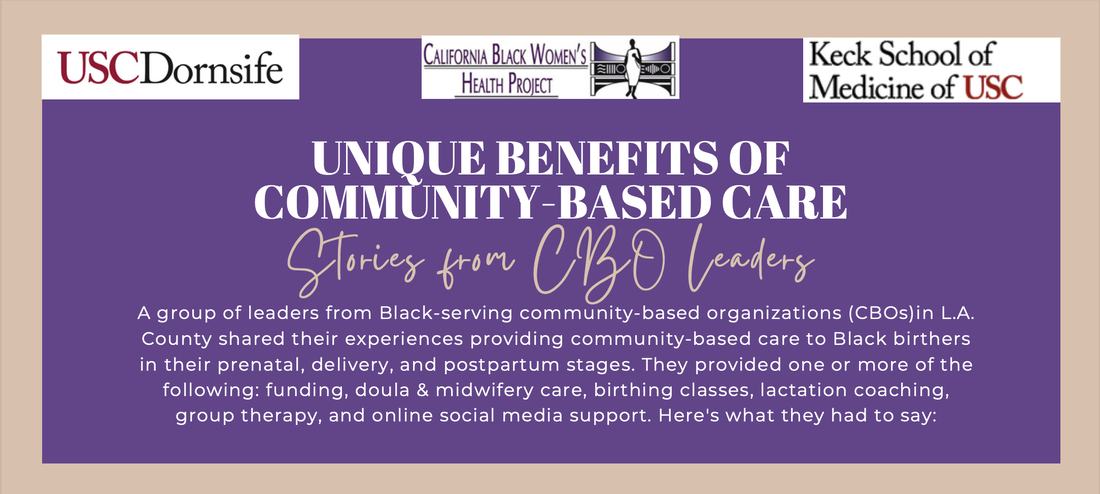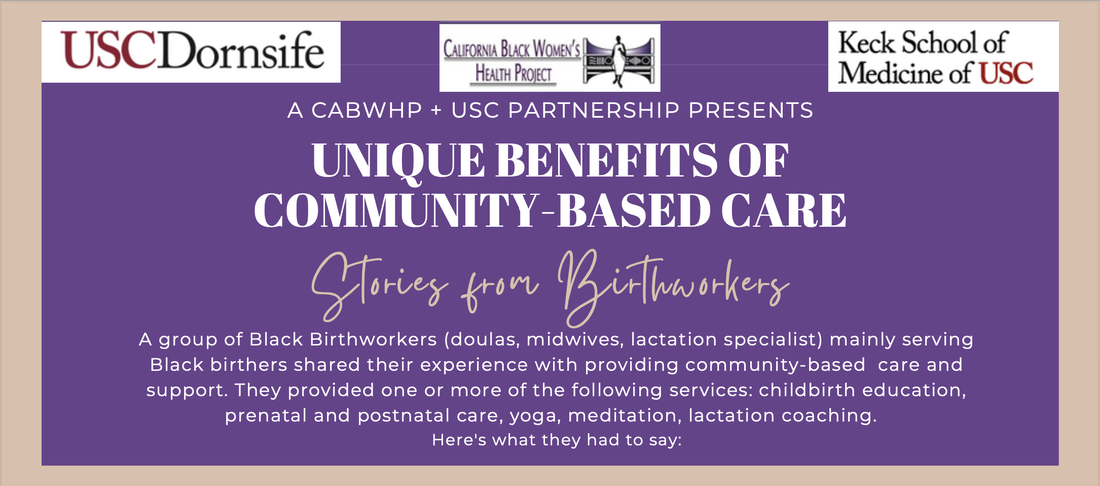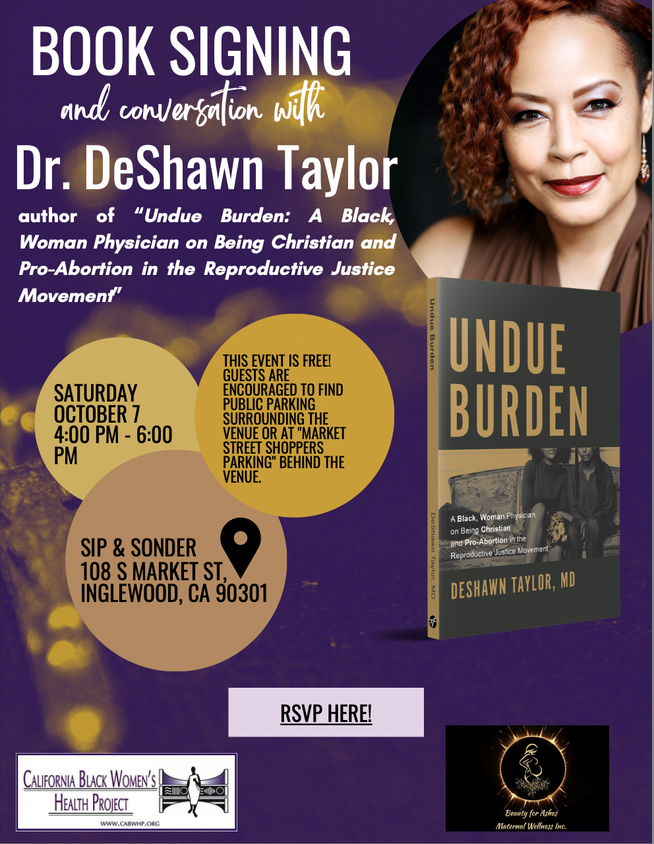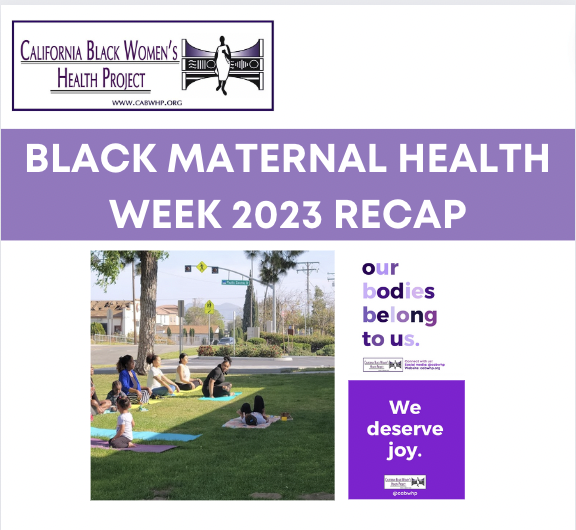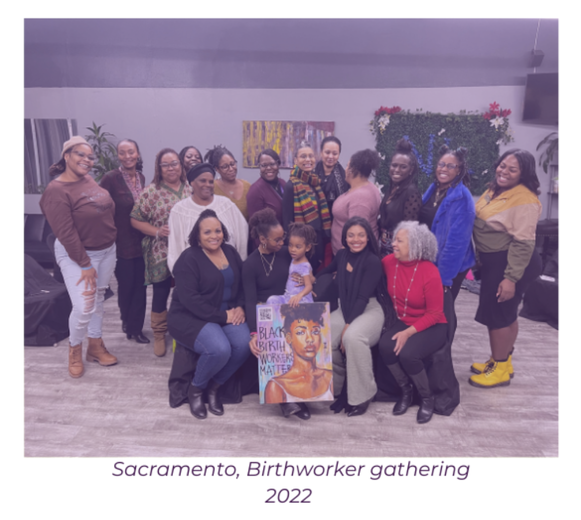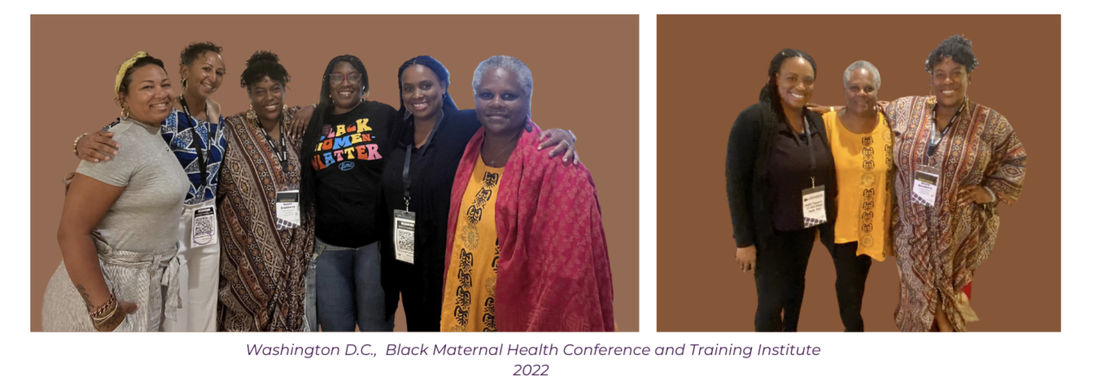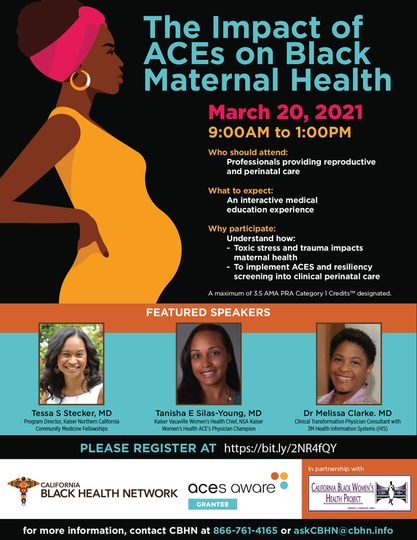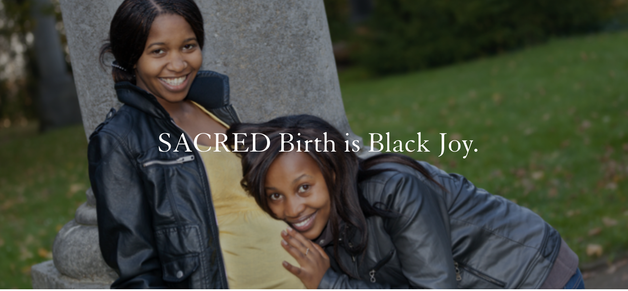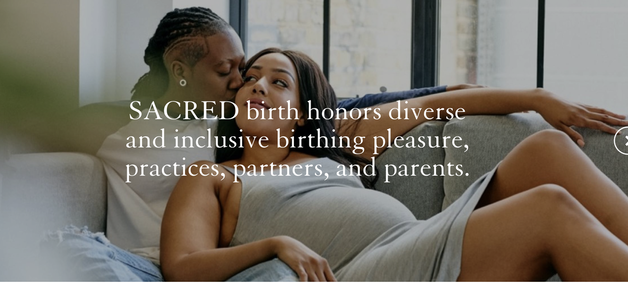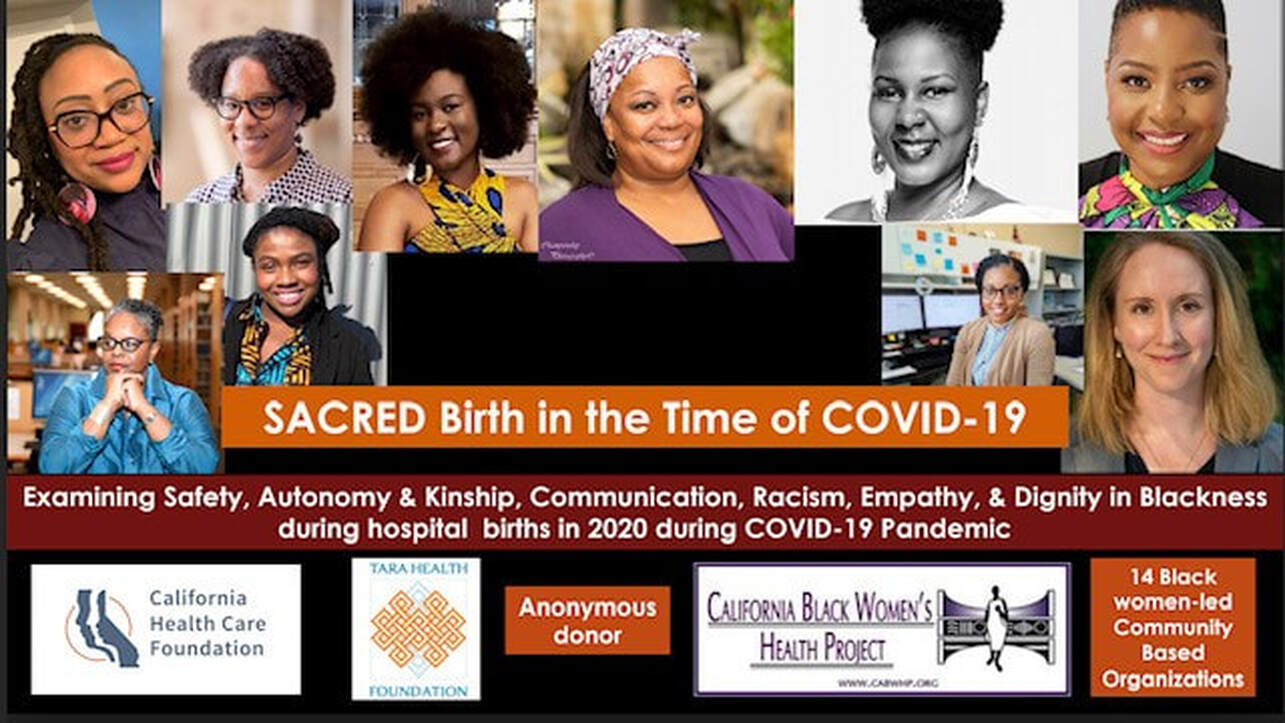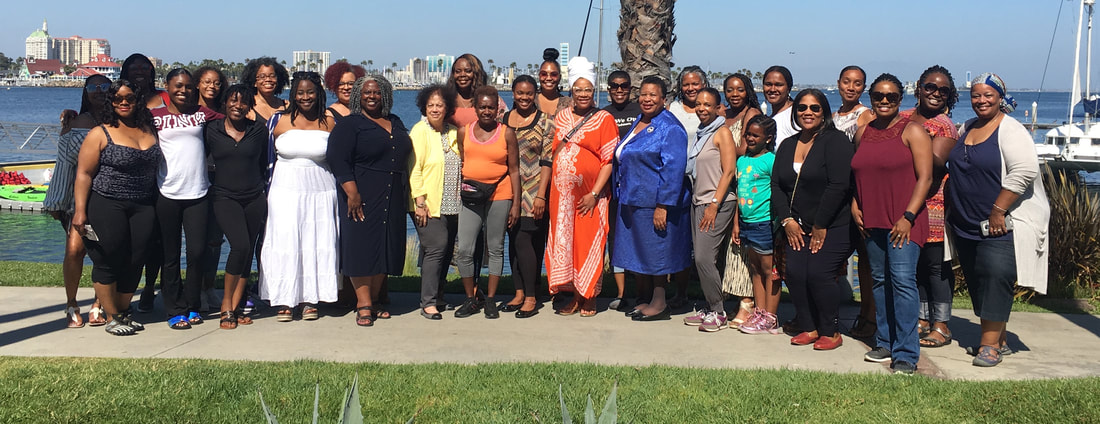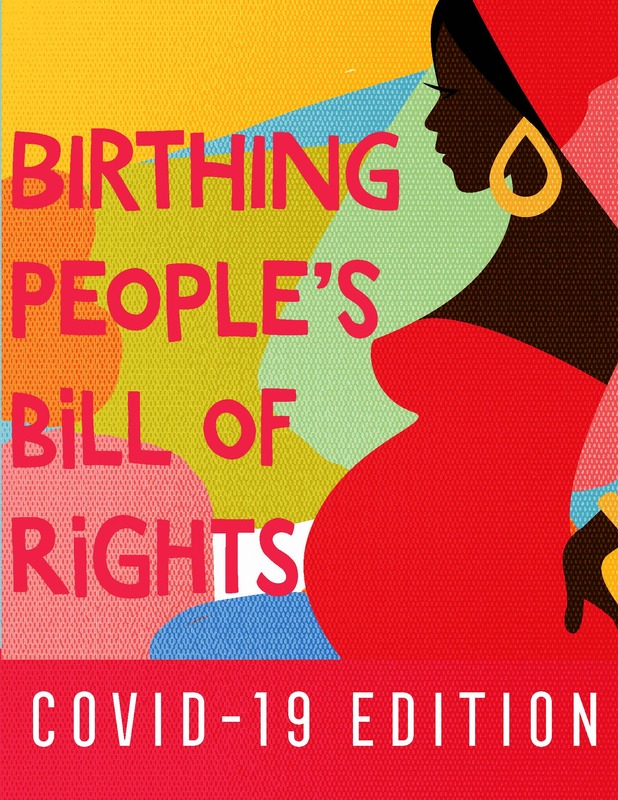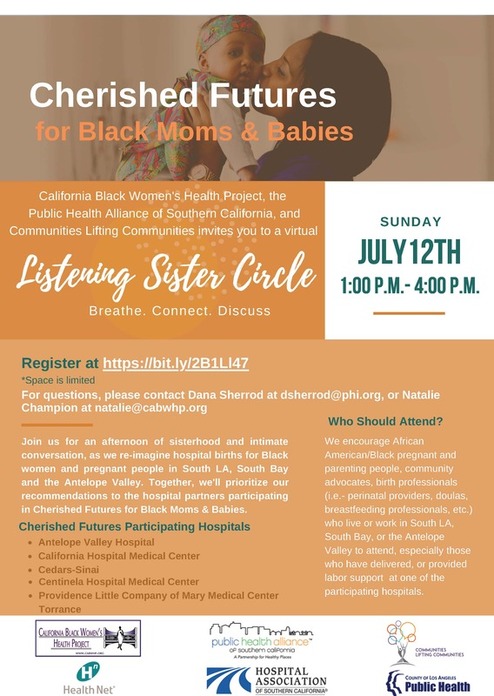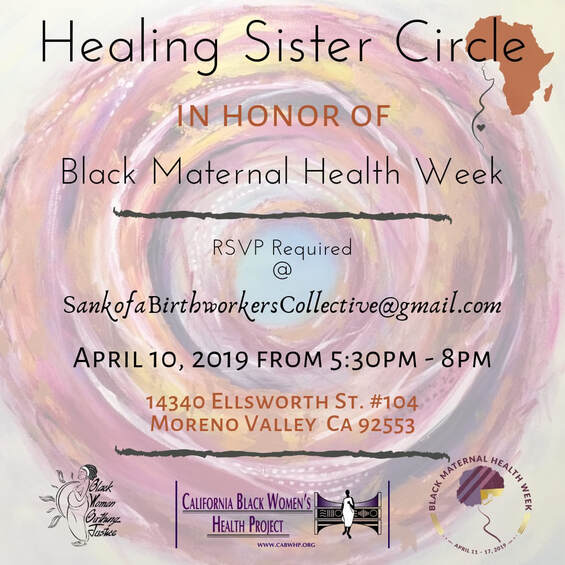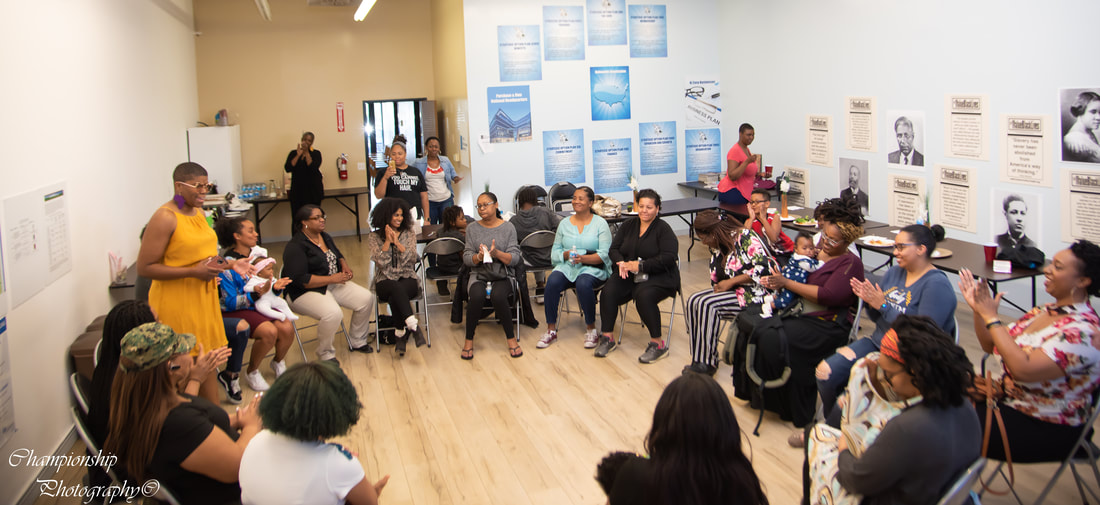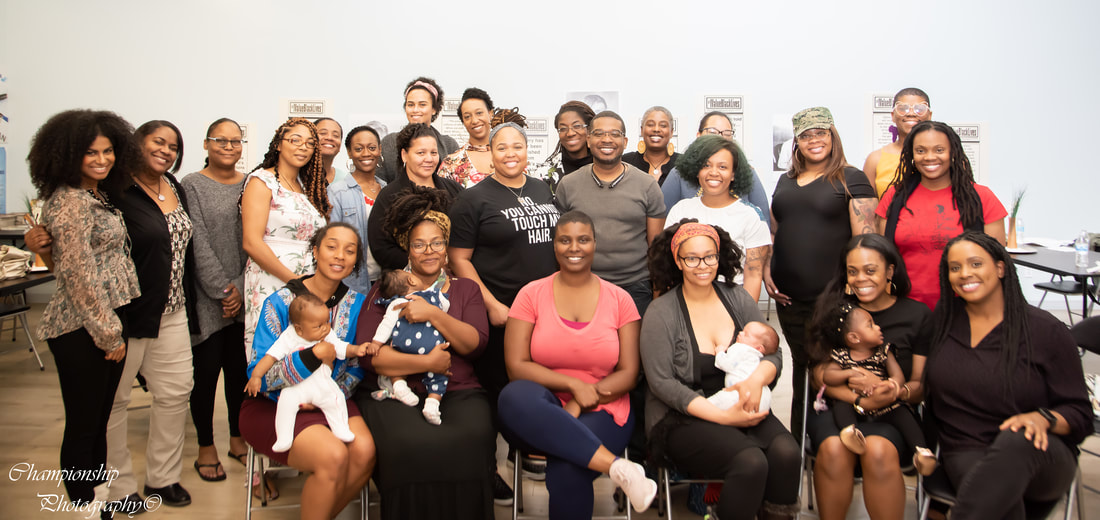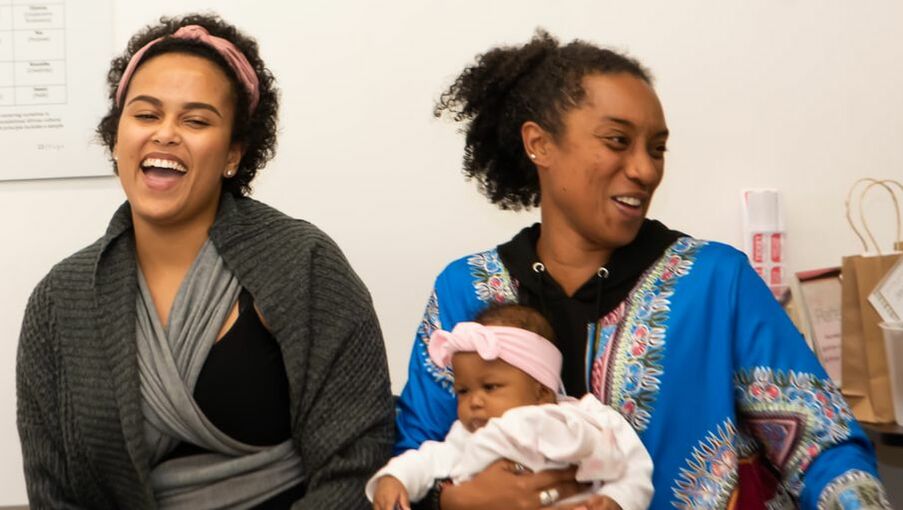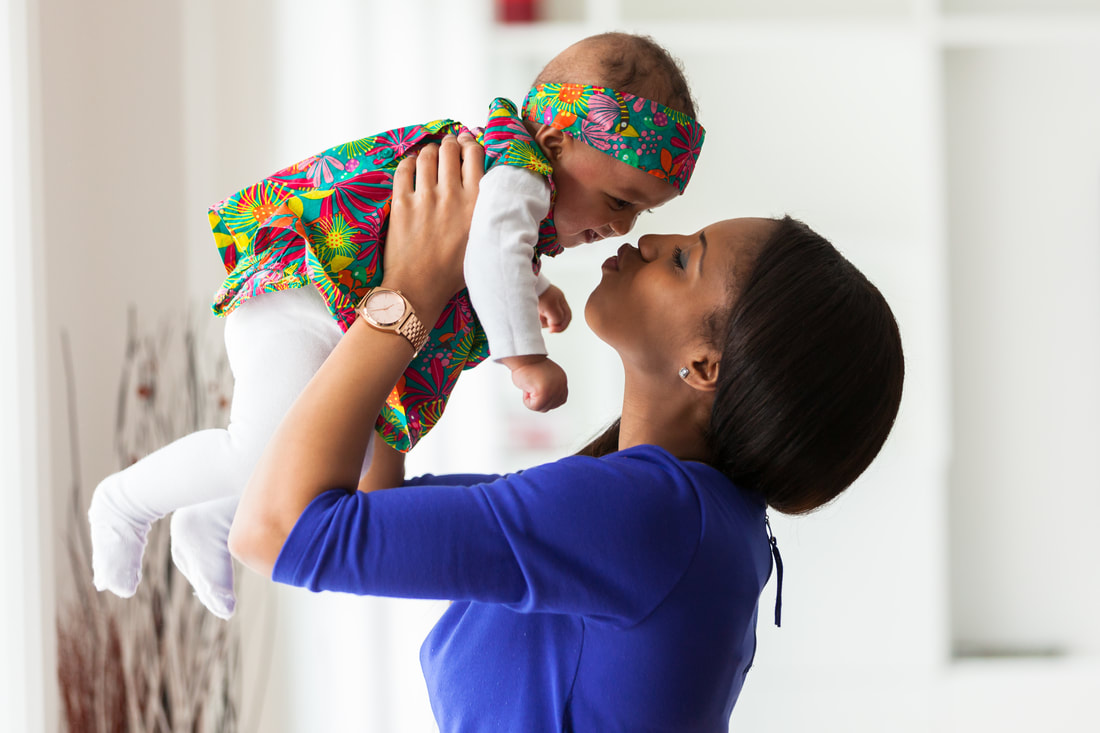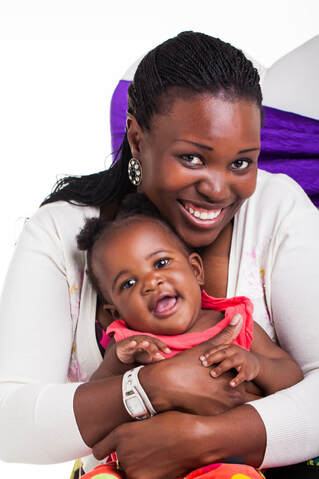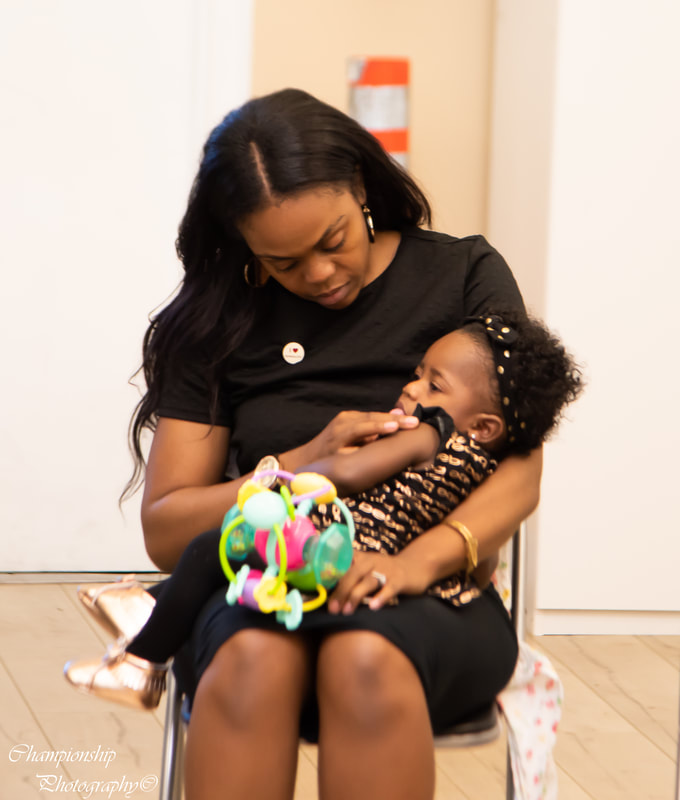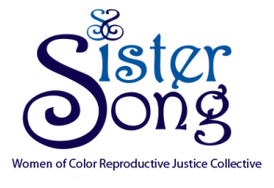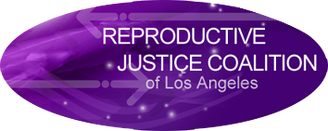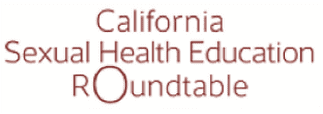California Black Women's Health Project is committed to addressing institutional and structural racism impacting the maternal well-being of Black women, babies and families throughout the birthing journey and beyond. We recognize the importance of uplifting the voices of Black mothers and families and supporting Black Birth Workers on the frontlines serving our community. We are committed to advocating for policies that address implicit racial bias and expand opportunities for Black Birth workers to meet the needs of Black women, babies and families.
The Black Birthworker Toolkit
|
Black Birthworkers matter! They are on the frontline in supporting Black maternal and infant health and the lifeblood for creating positive birth outcomes for Black mamas, babies, and families.
UBUNTU - We are... because You are! Our business toolkit is designed to empower and support Black Birthworkers - midwives, doulas, maternal mental health peer specialists, lactation consultants, birth educators, and breastfeeding counselors engaged in maternal/reproductive justice work. We strive to uplift and strengthen the capacity and impact of the Black Birthworkers community via our Sister Circle model of engagement, capacity-building tools, & collaboration. We seek your support in sharing this Toolkit with your friends, colleagues, and networks |
Get involved!
Upcoming Campaigns & Events
Stay tuned for upcoming Maternal & Reproductive Health events. To find all upcoming CABWHP events visit: cabwhp.org/events
Recent updates and highlights
When speaking about the devastating maternal health outcomes for Black families and the closing of Centinela Hospital's maternity ward in Inglewood Raena Granberry, our Director of Maternal and Reproductive Health, highlighted the importance and impact of Birthworkers.
We partnered with the University of Southern California to produce a qualitative research project designed to discover the "Unique Benefits of Community-Based Care for Black Women and Birthing People"
"Undue Burden" by Deshawn Taylor, MD Book Signing and Discussion
Saturday, October 7, 2023 | Inglewood, CA
Saturday, October 7, 2023 | Inglewood, CA
August 26th | Black Birthworker Celebration
We held the first annual Birthing Black Joy: Birthworker Celebration & Wellness Day, an empowering celebration, on Saturday, August 26th in San Diego.
We came together to pour into and uplift Black birthworkers and honor their incredible contributions! This celebration was for all Black perinatal health professionals, including midwives, doulas, lactation consultants, perinatal educators and community health workers.
Birthworkers immersed themselves in a rejuvenating and joyful day featuring soothing massages, invigorating yoga flows, chiropractic care and revitalizing fire cupping.
Sponsored by California Black Women’s Health Project and hosted by the San Diego Black Birthworkers Collective, Movement Matters Collective and the People’s Holistic Clinic, this day showcased holistic wellness and unity.
We held the first annual Birthing Black Joy: Birthworker Celebration & Wellness Day, an empowering celebration, on Saturday, August 26th in San Diego.
We came together to pour into and uplift Black birthworkers and honor their incredible contributions! This celebration was for all Black perinatal health professionals, including midwives, doulas, lactation consultants, perinatal educators and community health workers.
Birthworkers immersed themselves in a rejuvenating and joyful day featuring soothing massages, invigorating yoga flows, chiropractic care and revitalizing fire cupping.
Sponsored by California Black Women’s Health Project and hosted by the San Diego Black Birthworkers Collective, Movement Matters Collective and the People’s Holistic Clinic, this day showcased holistic wellness and unity.
July 22nd | July Doula Panel
July 22nd | Birthworkers Coalition of Antelope Valley Mixer
2023 marked the 6th annual BMHW, which was held from April 11-17, 2023! In order to uplift Black women and their families, we at California Black Women's Health Project joined forces with Black Mamas Matter Alliance to center Black women’s scholarship, maternity care work, and advocacy across the full-spectrum of sexual, maternal and reproductive health care, services, programs and initiatives.
Check out the recap
Check out the recap
- We developed a business toolkit designed to empower and support Black birthworkers, midwives. doulas, maternal mental health peer specialists, lactation consultants, birth educators, and breastfeeding counselors engaged in maternal/reproductive justice work.
- To help birthworkers increase their capacity and thrive, we hosted trainings in Northern and Southern California.
- We attended statewide and national events and conferences to collaborate, share and advance our maternal and reproductive health work.
- We partnered with Cherished Futures to celebrate, shower and uplift birthworkers and their clients
Sankofa Birthworkers Collective
|
CABWHP is working in partnership with the Sankofa Birthworkers of the Inland Empire, which is comprised of birthworkers from many professional backgrounds and skill sets. The unique collective includes midwives, certified doulas, lactation consultants, community advocates and other supporters. Through this partnership, CABWHP and Sankofa Birthworkers Collective are deeply committed to providing high-level service while centering birthing families in a position of agency throughout the perinatal and postpartum experiences.
|
|
ACES and Black Maternal HealthCABWHP partnered with CBHN (California Black Health Network) for an event for healthcare providers, health professionals, and community service providers to discuss and learn about the connection between ACES and Black Maternal Health. The Sunday, March 20th program focused on effective approaches to address the needs of Black pregnant women, the impact of ACES, and its association with maternal health and poor birth outcomes for Black women, Medi-Cal recipients, and others. This event was designed for all health care providers across California who are interested in learning about the importance of and the role of ACES screening in addressing and improving Black Maternal Health and Infant Mortality outcomes.
|
The SACRED Birth Study
Congratulations to all who made this happen, especially to Black mothers and birthing people. Study enrollment for the SACRED Birth Study ended 1/15/2021. Data collection from existing enrolled participants ended 1/31/2021. Since the online release of the Patient Reported Experience Measure of OBstetric racism©, also known as the PREM-OB Scale™, on October 19, 2020, for data collection:
We will have the first and only soon to be validated Patient Reported Experience Measure of OBstetric racism©, also known as the PREM-OB Scale™, one of the most culturally and scientifically rigorous perinatal PREMs. Thank you ALL for supporting Black mothers & birthing people and our team.
- 2,480 people clicked on the website's referral link.
- 64 people were referred by providers.
- 1,655 people completed the online self-screening and signed the consent form.
- 845 people signed the consent form AND completed the contact form, passed the phone verification process, and did NOT later withdraw or decline to continue.
- 815 Black mothers and birthing people fully consented, completed the contact form, passed ALL phone verification processes, completed the enrollment survey, and completed the final survey by 1/31/2021.
- Birthed in California in 2020 (goal = 400) = 297 (74.25%)
- Birthed in Memphis, TN in 2020 (goal = 100) = 47 (47%)
- Birthed elsewhere in the U.S. in 2020 (goal = 500) = 471 (94.2%)
We will have the first and only soon to be validated Patient Reported Experience Measure of OBstetric racism©, also known as the PREM-OB Scale™, one of the most culturally and scientifically rigorous perinatal PREMs. Thank you ALL for supporting Black mothers & birthing people and our team.
|
SACRED Birth is a mixed-methods, multi-cohort, participatory quality improvement research study to examine Safety, Autonomy & Kinship, Communication, Racism, Empathy, & Dignity in Blackness during hospital births in 2020 in the time of a COVID-19 pandemic. The aims of SACRED Birth are to:
|
Sister Circle for Black Healers in Maternal Health
|
CABWHP recognizes that Black birth workers, healers, community leaders, mothers also need a safe space to share, affirm our unique experiences and celebrate our work and ability to show up in the face of adversity. We need a space to set it all down, talk it out, breathe, get support from our sisters and love on ourselves. We had an intimate collective conversation by the water, and collectively exhaled and poured into each other the tools and love we need to keep showing up for ourselves, our mothers, our babies and our community.
|
COVID-19 Birthing People's Bill of Rights
| |||||||
Lifting the Voices of
|
Planning for a Healthy Home Body and Baby
We partner with the Iris Cantor - UCLA Women's Health Education & Research Center to promote community advocacy around issues related to reproductive health and the environment. CABWHP understands the importance of bringing attention to the risks to reproductive health from environmental toxins. We also assist with the planning of the annual Conference on Women's Reproductive Health and the Environment in Los Angeles County.
As mothers, as daughters and members of our community, we have to advocate for changes and more intervention through policy around remediating the toxins within our communities." - Natalie Champion, CABWHP Project Manager | ||||||
Healing Sister Circle - Black Maternal Health Week
In collaboration with Sankofa Birth Workers Collective and Black Women Birthing Justice, CABWHP co-hosted a Healing Sister Circle in celebration of Black Maternal Health Week (April 11-17,2019). We gathered birth workers, healers and mothers to celebrate and honor our stories of service and thriving in the face of adversity and discrimination and discussed the importance of advocating for improving Black maternal health outcomes.
Maternal & Infant Health ResourcesBlack Mamas Matter Alliance https://blackmamasmatter.org/resources/literature/ Black Mamas Matter Alliance is a Black women-led cross-sectoral alliance that centers Black mamas to advocate, drive research, build power, and shift culture for Black maternal health, rights, and justice. #BlackMamasMatter Special Series: Black Infant Mortality https://www.scpr.org/topics/special-series-black-infant-mortality KPCC’s Priska Neely, whose own family is part of the statistic, produced a series of stories examining the history of the black-white gap in outcomes for babies and what communities are trying to do to tackle the issue. Her reporting shows that the root cause is a social one, and the suspected assailant is systemic racism and the chronic stress brought on by being a black woman in this country. Supporting the Physical and Mental Health of New and Expectant Black Mothers https://counseling.northwestern.edu/blog/mental-health-counseling-black-women-pregnancy/ The article examines the highs and lows of pregnancy and how it undoubtedly adds stress to an expecting mother’s life and how for women of color, that stress can be heightened. How Does Race Impact Childbirth Outcomes?(https://online.nursing.georgetown.edu/blog/race-disparities-maternal-infant-outcomes/) Covers why experts believe persistent poverty, chronic stress and lack of access to health care providers are some of the factors that explain the problem of America’s high maternal mortality rates. Black Infant Health https://www.cdph.ca.gov/Programs/CFH/DMCAH/bih/Pages/Sites.aspx#local_directory Black Infant Health seeks to improve African-American infant and maternal health, as well as decrease Black-White health inequities and social inequities for women and infants. BIH serves African-American women who are 18 years or older and up to 30 weeks pregnant at the time of enrollment. Services are provided by Family Health Advocates, Group Facilitators, Public Health Nurses and Social Workers. CinnaMoms Breastfeeding Support Circle www.cinnamoms.org CinnaMoms Breastfeeding support circle provides a safe space to discuss life, health, and breastfeeding while breaking down barriers and proving that #BlackWomenDoBreastfeed! Kindred Space LA/Birthing People Foundation https://www.kindredspacela.com/birthing-people Kindred Space LA/ Birthing People Foundation Offer home birth in the greater Los Angeles area and Birth Center, which is located in South L.A. They also offer lactation consultation, placenta encapsulation, childbirth education, parenting support, birth worker trainings and a lot more. Black Child Legacy Campaign http://blackchildlegacy.org/resources/perinatal-care/ The Black Child Legacy Campaign is the community-driven movement established by the Steering Committee on Reduction of African American Child Deaths, which is working to reduce deaths of African American children by 10% to 20% by 2020 in Sacramento County. Every Mother Counts (EMC) https://everymothercounts.org/ Every Mother Counts works to make pregnancy and childbirth safe for every mother, everywhere. California Women, Infants and Children https://www.phfewic.org/locations-and-hours/ PHFE WIC has more than 50 centers throughout Los Angeles, Orange, and San Bernardino Counties. Use the locator tool to find a WIC Center near you. Contact: Toncé Jackson, MPH, RDN, CLE Education and Projects Manager, STEP Department PHFE WIC, (626) 856-6618 ext. 310; Toncej@phfewic.org National Black Midwives Alliance https://blackmidwivesalliance.org National Black Midwives Alliance goal is to have a representatives voice at the national level that clearly outlines the various needs of Black Midwives. #BlackMidwives Abortion Care & Reproductive Justice ResourcesLA County Department of Public Health: Abortion & Family Planning Services Resource Guide
LA County Abortion Safe Haven: http://publichealth.lacounty.gov/owh/Abortion.html Access Reproductive Justice – California Abortion Fund: https://accessrj.org/ | English (800) 376-4636 | Spanish (888) 442-2237 Plan C: Resources for safe self-managed abortion care www.plancpill.org Policy and ReportsH.R. 6132 - The Social Determinants for Moms Act of 2020
Congresswoman Lauren Underwood, Congresswoman Alma Adams, Senator Kamala Harris, and members of the Black Maternal Health Caucus introduced The Black Maternal Health Momnibus. H.R. 3849 Midwives for Maximizing Optimal Maternity Services (MOMS) Act The Midwives for MOMS Act seeks to improve maternal health outcomes; ensure access to high-quality (equity) maternal health services for women, newborns, individuals, and families; and help end crisis level U.S. maternal mortality rates by expanding educational opportunities for Certified Nurse-Midwives (CNMs), and Certified Midwives (CMs). This is the first-time federal policymakers have prioritized investment in accredited midwifery education programs. H.R. 271 Mamas First Act The purpose of Mamas First Act is to amend title XIX of the Social Security Act to provide coverage under the Medicaid program for services provided by doulas and midwives, and other purposes. According to the Centers for Disease Control and Prevention, the maternal mortality rate varies drastically for women by race and ethnicity. AB 241 - Implicit Bias: Continuing Education: Requirements Implicit bias means the attitudes or internalized stereotypes that affect our perceptions, actions, and decisions in an unconscious manner exist and often contributes to unequal treatment of people based on specific traits and social groups (race, ethnicity, gender identity, sexual orientation, age, disability, and other characteristics). SB 464 - Dignity in Pregnancy and Childbirth Act Addresses the alarming disparities in maternal health by requiring all medical providers involved in perinatal services at hospitals and alternative birth centers to undergo evidence-based implicit bias training and evaluation. The Maternal Care Access and Reducing Emergencies (CARE) Act Focuses on eliminating racial discrepancies in U.S. maternal mortality rates - the death of a woman while pregnant or within 42 days of termination of pregnancy, from complications related to pregnancy, labor, delivery, or abortion - by creating two key Department of Health and Human Services (HHS) grant programs: 1) Implicit Bias Training Grants and 2) Pregnancy Medical Home Demonstration Project. SB 3363 Maternal Care Access and Reducing Emergencies (Maternal CARE) Act The Maternal Care Access and Reducing Emergencies (Maternal CARE) Act creates two new grant programs and directs a study focused on reducing racial health disparities in maternal health. The Implicit Bias Training Grants address implicit bias in judgment or behavior resulting from implicit attitudes and stereotypes by establishing a $25 million competitive grant program directed to medical schools, nursing schools, and other health professionals training programs to support implicit bias training. SB 1237 Nurse-Midwives: Scope of Practice Existing law, the Nursing Practice Act, establishes the Board of Registered Nursing within the Department of Consumer Affairs for the licensure and regulation of the practice of nursing. A violation of the act is a crime. Existing law requires the board to issue a certificate to practice nurse-midwifery to a person who, among other qualifications, meets educational standards established by the board or the equivalent of those educational standards. Existing law authorizes a certified nurse-midwife, under the supervision of a licensed physician and surgeon, to attend cases of normal childbirth and to provide prenatal, intrapartum, and postpartum care, including family-planning care, for the mother, and immediate care for the newborn. Existing law defines the practice of nurse-midwifery as the furthering or undertaking by a certified person, under the supervision of a licensed physician and surgeon who has current practice or training in obstetrics, to assist a woman in childbirth so long as progress meets criteria accepted as normal. SB 1383 Unlawful Employment Practices: California Family Rights Act Existing law prohibits an employer from refusing to allow a female employee disabled by pregnancy, childbirth, or a related medical condition to take a leave for a reasonable time of up to 4 months before returning to work. Existing law also prohibits an employer from refusing to maintain and pay for coverage under a group health plan for an employee who takes that leave, as specified. The California Family Rights Act specifies that those existing pregnancy, childbirth, or related medical condition leave provisions are separate and distinct from the protections provided by the California Family Rights Act. |
ReportsBattling Over Birth: Black Women & The Maternal Health Care Crisis in California
This report from Black Women Birthing Justice shares stories from over 100 women who recently gave birth in California. The report reveals the culture of fear and coercion that has transformed birth into a battleground, a deep lack of trust of our hospitals, and a broken maternal health-care system that fails too many black women. The report shakes up our understanding of where state violence happens, and who it happens to; putting the human rights spotlight onto a system that is often unaccountable to black communities. The Role of Socioeconomic Factors in Black-White Disparities in Preterm Birth coauthored by CABWHP Board Chair Tyan Parker Dominguez, Ph.D., MPH, MSW Socioeconomic factors play an important but complex role in PTB disparities. The absence of Black–White disparities in PTB within certain socioeconomic subgroups, alongside substantial disparities within others, suggests that social factors moderate the disparity. Further research should explore social factors suggested by the literature—including life course socioeconomic experiences and racism-related stress, and the biological pathways through which they operate—as potential contributors to PTB among Black and White women with different levels of social advantage. |
What is Reproductive Justice?
Listen to Black Women Share About Our Reproductive Health
California Black Women's Health Project is providing a platform for Black women to share their personal reproductive health stories, hear and learn from each other, and create a new and powerful narrative for policy changes that move the needle toward achieving improved sexual and reproductive health outcomes for Black women.
|
|
|
Reproductive Health Collaborations
|
California Black Women's Health Project is a founding member of the SisterSong Women of Color Reproductive Health Collective, which is made up of 76 local, regional and national grassroots organizations and more than 400 individuals, as well as white and male allies who support our goal of improving the lives of women of color and indigenous women in the United States through Reproductive Justice.
California Black Women's Health Project is a coalition member of the Reproductive Justice Coalition of Los Angeles, which supports women's right to have all the necessary information and resources to make the best decisions for themselves and their family. Since many factors determine a woman's ability to exercise her reproductive rights - including race, sexual orientation, ethnicity, age, class, immigration status and disability - RJCLA takes an inclusive approach to all factors affecting a woman's reproductive freedom.
California Black Women's Health Project is a stakeholder of the Sexual Health Education Roundtable, along with the ACLU of Northern California and Planned Parenthood Affiliates of California. This coalition brings together community-based organizations, researchers, policy advocates and educators with the goal of sharing information and promoting comprehensive sexuality education for youth. By joining the voice of grassroots and local efforts, research and organizations working together to call for improved programs and policies at the state and national levels, the Sexual Health Education Roundtable has become an influential advocate for the quality sex education our youth need and deserve.
|
